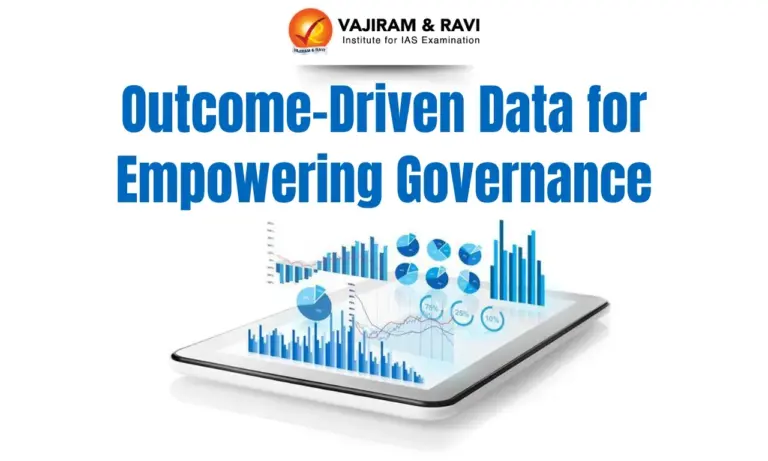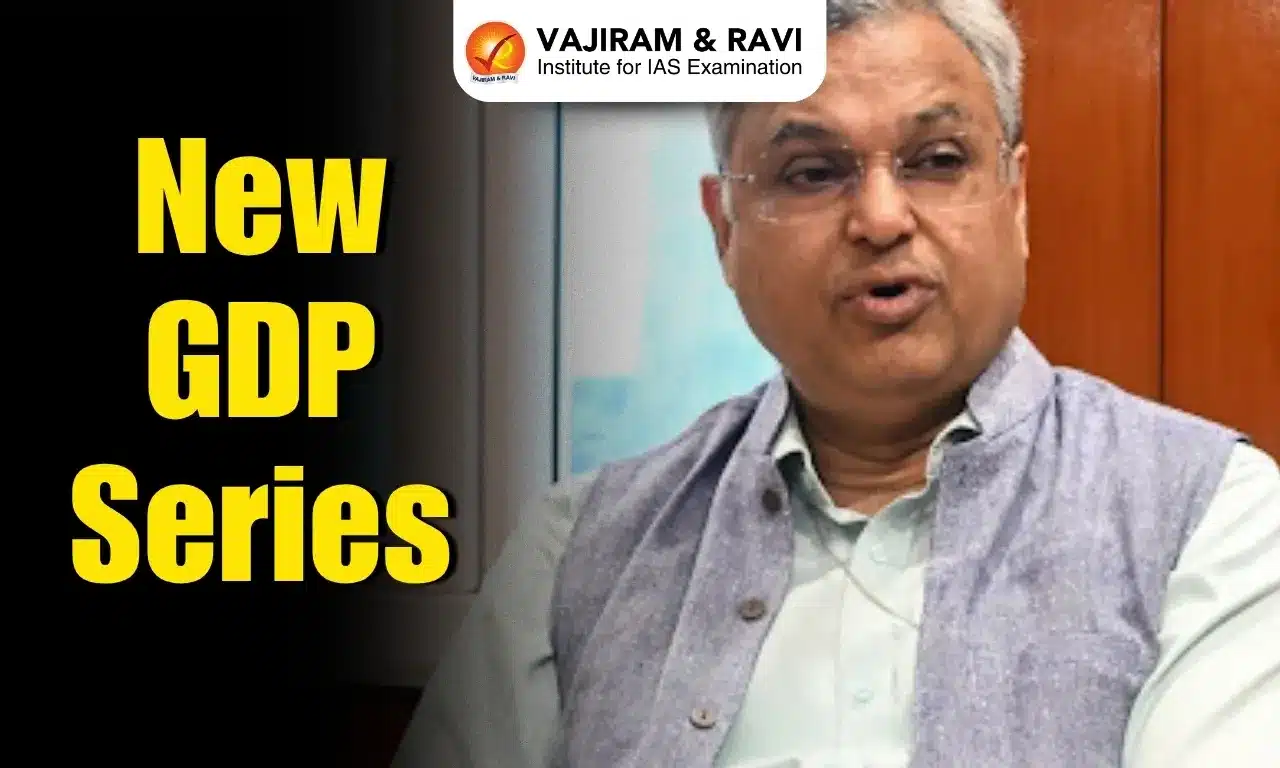Governance Latest News
- India is shifting toward outcome-driven monitoring to enhance governance effectiveness, with several states piloting innovative data use frameworks to improve public service delivery.
Introduction: Shaping Viksit Bharat through Better Data Use
- In the journey toward a “Viksit Bharat” (Developed India), public service delivery must transcend traditional bureaucratic frameworks to become outcome-oriented, citizen-centric, and transparent.
- This transformation hinges on the effective use of data, not as a tool for inspection, but as a catalyst for improvement.
- While India generates extensive data across sectors, nutrition, education, health, and livelihoods, the current system often focuses on inputs rather than results.
- The call is clear: move from data fatigue to meaningful, informed action that supports better decision-making, empowers frontline workers, and addresses local needs dynamically.
India’s Expansive but Fragmented Data Ecosystem
- India’s governance ecosystem is replete with data sources:
- Unified District Information System for Education (UDISE+)
- Health Management Information System (HMIS)
- National Family Health Survey (NFHS)
- National Sample Survey (NSS)
- Despite these efforts, the emphasis largely remains on input tracking, school enrolments, food distribution, or health supplies, while outcome measures (like literacy, nutrition, or treatment success) receive less attention.
- Furthermore, national surveys are often too broad, infrequent, and disconnected from local programs.
- This results in frontline workers feeding data upwards without clarity on its practical relevance.
The 4As Framework: Making Data Actionable
- To reimagine monitoring, a 4As framework is proposed:
- Ascertain – Identify the few critical outcomes that matter most.
- Assess – Embed regular, low-burden assessments to track progress.
- Assist – Support field workers through mentoring, training, and feedback.
- Adapt – Modify strategies based on real-time feedback and citizen needs.
- This shift reorients monitoring from quantity to quality, creating feedback loops that not only track progress but also drive it.
Learning from State-Level Innovations
- States like Uttar Pradesh, Andhra Pradesh, Telangana, and Odisha are already experimenting with outcome-oriented data systems.
- Uttar Pradesh launched the NIPUN Bharat Mission, starting with the fundamental question, “What should a child learn by the end of each grade?” Weekly learning goals, termed Lakshyas, were integrated into teacher training and review meetings. No new structures were created, existing ones were streamlined to work in coherence.
- Andhra Pradesh, under a pilot programme, integrated real-time dashboards with mentoring and field visits. This approach led to a 20% improvement in foundational learning in just one year.
- Telangana uses its Human Development and Livelihood Survey (HDLS) to track annual citizen outcomes. This has enabled dynamic resource allocation and rapid course correction. Similarly, self-reporting, managerial oversight, and citizen feedback in the rural development department have built a culture of accountability without blame.
- Odisha’s schools now conduct quarterly block-level teacher meetings, not just for data reporting but for collaborative problem-solving based on that data.
Embedding Analytics for Institutional Capacity
- To move from episodic to systemic improvements, the authors propose setting up Data Analytics Units (DAUs) within planning departments.
- These units can synthesise data from multiple sources, routine programme records, citizen feedback, and real-time surveys, to offer integrated insights that inform policy.
- This shift enables departments to not only measure impact but also evolve based on what the data reveals. Rather than being passive collectors, these DAUs can become active agents in improving governance outcomes.
Source: IE
Last updated on March, 2026
→ UPSC Notification 2026 is now out on the official website at upsconline.nic.in.
→ UPSC IFoS Notification 2026 is now out on the official website at upsconline.nic.in.
→ UPSC Calendar 2026 has been released.
→ UPSC Final Result 2025 is expected to be released soon.
→ Check out the latest UPSC Syllabus 2026 here.
→ Join Vajiram & Ravi’s Interview Guidance Programme for expert help to crack your final UPSC stage.
→ UPSC Mains Result 2025 is now out.
→ UPSC Prelims 2026 will be conducted on 24th May, 2026 & UPSC Mains 2026 will be conducted on 21st August 2026.
→ The UPSC Selection Process is of 3 stages-Prelims, Mains and Interview.
→ Prepare effectively with Vajiram & Ravi’s UPSC Prelims Test Series 2026 featuring full-length mock tests, detailed solutions, and performance analysis.
→ Enroll in Vajiram & Ravi’s UPSC Mains Test Series 2026 for structured answer writing practice, expert evaluation, and exam-oriented feedback.
→ Join Vajiram & Ravi’s Best UPSC Mentorship Program for personalized guidance, strategy planning, and one-to-one support from experienced mentors.
→ Check UPSC Marksheet 2024 Here.
→ UPSC Toppers List 2024 is released now. Shakti Dubey is UPSC AIR 1 2024 Topper.
→ Also check Best UPSC Coaching in India
Outcome-Driven Data for Empowering Governance FAQs
Q1. What is outcome-driven monitoring?+
Q2. What is the 4As framework proposed in the article?+
Q3. How has Uttar Pradesh implemented outcome monitoring in schools?+
Q4. What role do Data Analytics Units (DAUs) play in public systems?+
Q5. How is Telangana using outcome data for citizen benefit?+
Tags: mains article outcome driven data for empowering governance upsc mains current affairs


















